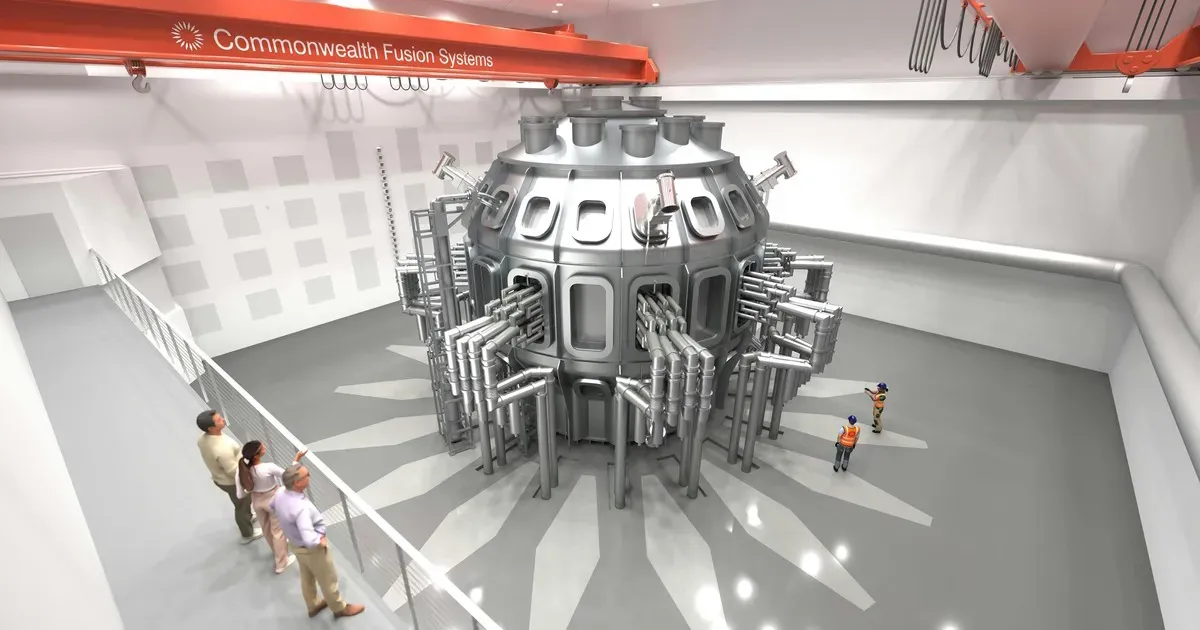Commonwealth Fusion Systems secures $1B+ fusion power deal with Eni

Commonwealth Fusion Systems (CFS), a leading startup in the race to commercialize fusion power, has signed an agreement to sell more than $1 billion worth of electricity to Italian energy giant Eni. The deal marks the second major purchase agreement for the company’s first full-scale fusion plant, Arc, which is slated to open in the early 2030s outside of Richmond, Virginia.
The 400-megawatt reactor will be located near one of the country’s highest concentrations of data centers, a prime market for clean, reliable energy. Earlier this year, CFS struck a similar deal with Google, which committed to buying half of Arc’s output. While details on the size and timeline of Eni’s contract remain undisclosed, the two agreements give CFS crucial backing as it looks to finance and scale its groundbreaking technology.
From Demonstration to Commercial Scale
CFS is currently completing Sparc, its demonstration-scale reactor in Devens, Massachusetts. CEO Bob Mumgaard said last week that construction is about 65% complete, with the company still on track to begin operations in late 2026.
“One of the reasons we built Sparc is so that we could actually get the experience of what it’s like to build a nearly full-scale system,” Mumgaard said. “Arc will be the first of many that’s backed by a supply chain that is primed for scale.”
Sparc is designed to prove that a compact, high-field tokamak can generate more energy than it consumes—a milestone long sought in fusion research. The company has raised nearly $3 billion to date, including an $863 million Series B2 round just three weeks ago with participation from Nvidia, Google, Breakthrough Energy Ventures, and Eni itself.
Why Eni?
Unlike Google, which has hinted at using Arc’s electricity to power its massive data centers, Eni has no comparable U.S. operations. Instead, the Italian oil and gas major plans to resell the electricity into the grid.
“The power will be sent to the grid at the end of the day,” said Lorenzo Fiorillo, Eni’s director of technology, R&D, and digital.
Given the novelty and expense of fusion power, that resale may not be profitable in the near term. But the deal provides something more important: a benchmark price for fusion electricity and financial certainty that CFS can use to attract additional investment.
Mumgaard acknowledged that dynamic, saying the agreements give CFS “the certainty of where the power is going to go, what the price is going to be, etc. And that allows us to then take that package to more financial investors… and start having conversations about what it’s going to be like to actually finance this plant.”
Risk and Reward
CFS is widely regarded as one of the most promising companies in the fusion space, but the risks remain significant. Sparc must first demonstrate net energy gain before Arc can move forward as planned. If there are delays—or worse, if the technology doesn’t perform—the agreements with Google and Eni could be tested.
To address this, CFS has structured the contracts to balance accountability with flexibility. “The partners understand these challenges that come from first of a kind,” Mumgaard said. “No one in this situation is like, oh, you know, invent an entire new technology, an entire industry, and if it doesn’t work on this day, we’re just going to walk away.”
The Bigger Picture
The deals with Google and Eni mark a turning point for fusion: investors and corporate partners are no longer just betting on the science—they’re contracting for the electricity. Even if the economics don’t add up right away, the agreements give CFS the credibility to build Arc and, potentially, an industry around it.
If successful, Arc could pave the way for a fleet of fusion reactors worldwide, promising virtually limitless clean energy. For now, though, all eyes are on Sparc’s 2026 debut.





